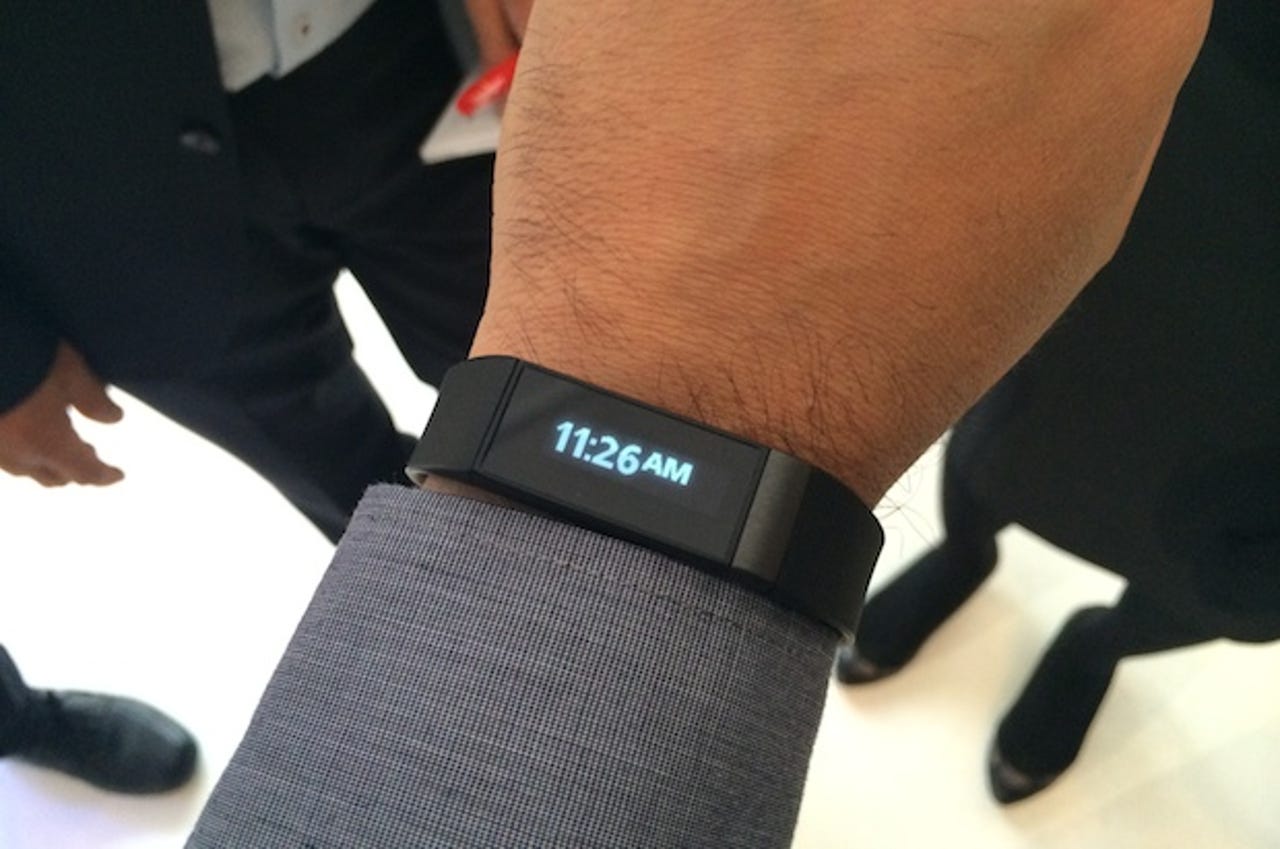Acer fails to deliver on Chrome OS tablet expectation: Will cloud save the day?

NEW YORK — There's good news, and bad news.
The bad news is that any anticipation of the first Chrome OS-based tablet quickly vanished at the end of Acer's event in New York City on Tuesday. There was a glimmer of hope that with the advances to Chrome OS' platform, notably the inclusion of touch features and an on-screen keyboard, Acer might be the prime candidate to dish out a debut "Chromeslate" of some description.
The good news? Acer seems to have a plan to counter its dwindling market share, revenue, and overall corporate image. Which, in the grand scheme of things, isn't such a bad thing.
- Related on ZDNet: Acer bundles 'build-your-own-cloud' with new tablets, phones, wearables | CNET Reviews: Acer introduces new PCs and a powerful Chromebook | Acer jumps into wearables with a Liquid Leap: plus, new Liquid Jade phone | Acer Aspire Switch 10: 10-inch Windows 8 tablet (hands-on)
The Taiwan-based company dished out a number of hybrid and touch-based laptops at the event, along with a bevy of tablets, and an Intel-based Chromebook it described as the "fastest" on the market. It also surprised many with the addition of a smartphone and wearable fitness band duo that will take the stage at its own launch party later this year.
Acer's taking the slowly-slowly approach. At least for now. Baby steps, it seems.
But how those devices all talk to each other and share data could be the company's golden ticket.
Acer's chief executive Jason Chen joined the company just four months ago following the resignation of J.T. Wang, who left after a massive fiscal third-quarter earnings collapse. At his first major announcement of the year, Chen presented a strategy that aims to bring the company back up to speed with what its consumers and business customers want.
The idea is simple: Acer's pitching its customers — against the likes of Dropbox, Microsoft's OneDrive, and Google Drive — with its own private, in-house cloud service that Chen dubs "bring-your-own-cloud" (BYOC).
While not strictly a business-aiming proposal, it is perhaps the first modern twist on what business customers have — a private cloud but for consumer customers, with the aim of nailing down that bring-your-own-device (BYOD) segment with it.
Chen says BYOC is focused on people who "want to own their own data." The reality is that most people keep their vital, important data — along with their photos, videos, and music — on their own devices and in local storage. Yes, there are solutions and services that allow you to upload most data, but it reality it has to come from somewhere, and it's mostly stored on your hard disk.
"BYOC uses your PC as your very own datacenter," he said. "And you're in control."
The concept was first brought up two years ago at the 2012 Consumer Electronics Show in Las Vegas. Its proprietary AcerCloud service was a little late to the game, but now the company is taking that foundation and bolstering it at every corner.
As long as you have an Acer device at the core of your private cloud circles, Chen said, you can hook up other devices — mobile includes Android, iPhones and iPads, and Windows tablets — along with any other non-Acer device you can imagine.
Which is handy, considering Acer's market share in the PC business is falling rapidly at just 6.7 percent of the overall market — down by 21 percent year-over-year on the calendar fourth-quarter.
CNET Reviews
Chen said just before the year's close: "We need to dig ourselves out of a hole," citing poor early investments in touch-panels, ultrabooks, and underestimating the threat from tablets on the PC industry. He also said he wants to further deepen its roots in cloud computing, but noted it's not driving sales.
And that's probably the ticket that's going to drive its investment. The personal cloud is a relatively early twist on the firmly established market, but it could be the driver to push individual sales of Acer laptops a little higher to contend with the established cloud players.
Cloud computing won't drive sales, but the private cloud concept could be the ticket if it wants to take on the likes of Dropbox, Microsoft, and Google — particularly if it can satisfy those cranky IT managers and chief information officers with regulators, policies, and data protection and security features.
